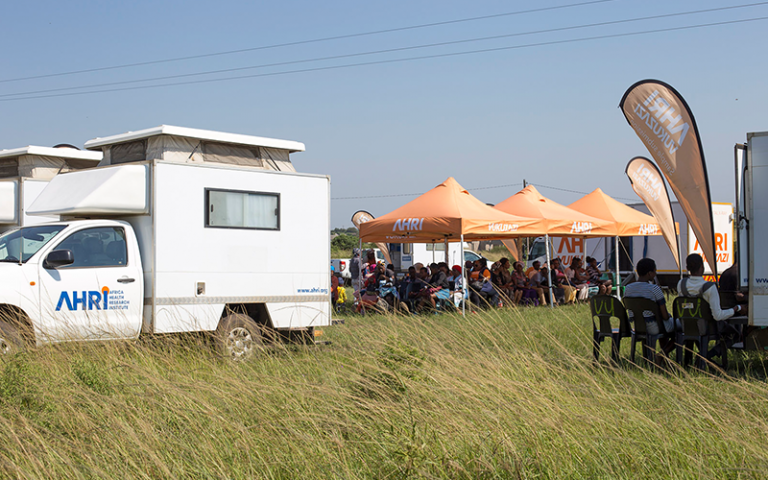UCL academics contributing to the Africa Health Research Institute’s fight against HIV and TB
UCL scientists affiliated to the Africa Health Research Institute are helping to address the TB and HIV epidemics in South Africa through research and interventions.

4 February 2021
In 2019, 7.5 million people living in South Africa had HIV. Although most have access to antiretroviral treatment, many die when they become co-infected with drug-resistant tuberculosis (TB).
The Africa Health Research Institute (AHRI), based in South Africa, is one of UCL’s global partners and combines detailed population data with basic science, social science and experimental medicine research to understand the health of under-resourced populations, and conduct intervention studies to help improve health and well-being.
Based across two campuses in Durban and Somkhele, in the KwaZulu-Natal province of South Africa, the institute brings together transdisciplinary scientific expertise from South Africa and around the world, including several academics from UCL, the AHRI’s UK university partner. The AHRI works in close collaboration with the communities where it does research, and has strong relationships with traditional leadership structures, traditional health practitioners, and with the Department of Health.
We are determined to accelerate progress on tackling disease epidemics, both in KwaZulu-Natal and on a more global scale.
“At the AHRI, we strive to better understand the health of the people of South Africa and conduct research, including clinical trials for new treatments, that will help us improve the treatments and care available to them,” explains its director Professor Willem Hanekom (UCL Infection & Immunity)s.
KwaZulu-Natal has one of the highest burdens of HIV and TB globally, and AHRI’s health surveillance and intervention programme is helping to address the epidemic. Between 2012 and 2017, the rates of new HIV infections among men and women significantly declined, thanks to the introduction by South Africa’s Department of Health of screening programmes, voluntary medical male circumcision and earlier access to retroviral treatments.
From 2018, AHRI implemented a programme of health screening coupled with scientific research called ‘Vukuzazi’ – ‘Wake up and know yourself’ in isiZulu, one of South Africa’s official languages.
The programme combines community-based health screening for HIV, TB and non-communicable disease such as diabetes and heart disease with translational mechanistic studies to understand the intersections between disease epidemics in South Africa.
Vukuzazi’s mobile screening camps enrolled 30,000 people in northern KwaZulu-Natal. At the camps, data is analysed in real time so that participants can be referred to the public health services as needed.
“We are determined to accelerate progress on tackling disease epidemics, both in KwaZulu-Natal and on a more global scale, through cutting-edge research and providing excellent training for the next generation of African researchers,” adds Professor Hanekom.
 Close
Close


